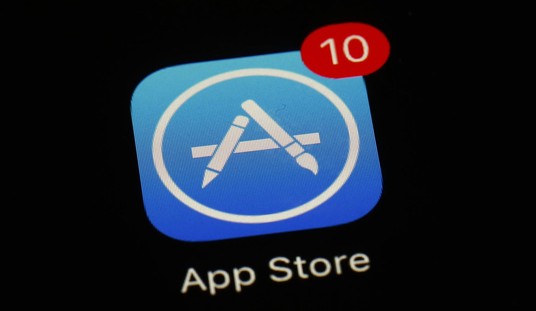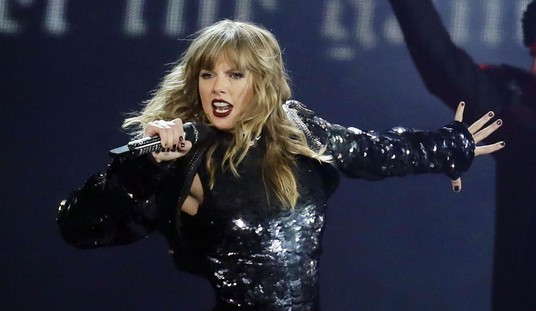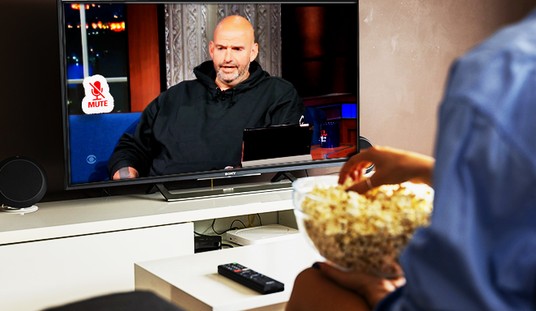If Florida residents along the Panhandle coast haven’t gotten out of Hurricane Michael’s way, the governor tells CNN, it’s too late now. “The time for evacuating along the coast has come and gone,” Rick Scott declared. Michael will hit the state as a Category 4 storm, having gained strength overnight as its track remains constant:
Florida Gov. Rick Scott: "If you chose not to evacuate now, you're not going to be able to get out. This thing is coming now."
Follow live updates as Hurricane Michael bears down on the Gulf Coast: https://t.co/vLDdzfT2aD pic.twitter.com/tzssBH2I57
— New Day (@NewDay) October 10, 2018
Hurricane Michael strengthened to a Category 4 storm early Wednesday as it barreled toward Florida’s northern Gulf Coast, threatening catastrophic storm surge, torrential rain and heavy winds. …
The storm is expected to move across the northeastern Gulf of Mexico through Wednesday morning before making landfall in the Panhandle later in the day, according to the National Hurricane Center.
The center said in a 5 a.m. advisory that Michael’s top sustained winds had risen to 140 mph and that some additional strengthening is possible before Michael wallops the area with “life-threatening” storm surge, heavy rainfall and likely tornadoes.
Hurricane-force winds will extend 45 miles from the center of the storm, the center said. The hurricane center called Michael “extremely dangerous.”
As of yesterday afternoon, Michael was a Cat-2 storm, which might have given some people the idea that they could ride this out. Hurricanes can pick up speed and power quickly, however, as CNN notes in another segment this morning, especially when moving over warm water:
“Michael is a very powerful, Category 4 hurricane…”: NOAA Hurricane Hunter Ian Sears is currently flying through Hurricane Michael as the storm approaches the Florida Panhandle.
Latest developments: https://t.co/FSpKECylLG
Track Hurricane Michael: https://t.co/JhnjJlvm5y pic.twitter.com/AcPno2i8FE— CNN (@CNN) October 10, 2018
As if to underscore that point, CBS reports that Michael’s not far now from being a Category 5 storm:
NEW: Hurricane Michael's max sustained winds are now reaching 145 mph winds, that's 12 mph away from being a Category 5. https://t.co/PwYytaNudJ pic.twitter.com/7R2sl0AEor
— CBS This Morning (@CBSThisMorning) October 10, 2018
“It’s going to be a bruiser.” No doubt. As of this morning, this is the hurricane’s expected track:

At this point, the people who remained in the Florida panhandle have little choice but to “hunker down,” as Scott advises this morning, but that won’t be easy. If this hits the shore with winds at 145 mph, there won’t be many refuges that will be able to withstand it and protect people from the floods to come. It’s going to be costly in terms of recovery, but more so in terms of human life.
It’s a secondary consideration at best for now, but the storm’s impact will eventually be felt in the midterm elections, too. Florida’s two contests at the top of the ballot were already virtual dead heats before Michael, so voters will watch carefully to see who handles the crisis best before deciding on the next governor and senator. In my column for The Week, I argue that Scott has a clear advantage — if he can minimize the loss of life and the interruption of services:
The hurricane and subsequent response from Scott and Gillum are what voters will measure in the next few weeks. Both will need to work together to minimize the damage to Tallahassee’s citizens while finding ways to distinguish their own performances. Their best bet is to work together as much as possible, even if that runs the risk of boosting each other in relation to their own party’s candidate in the other statewide race.
That leaves DeSantis and Nelson in a tough spot. Neither have any authority to direct preparation or recovery efforts, although both will certainly be on the ground and lending assistance in the crisis. Both will undoubtedly look for openings for criticism, but that is a dangerous game as well. Any criticism under the circumstances will look obviously partisan and self-serving in a crisis, which might well result in a backlash that could sink their chances. They have no other role than passive observers, almost literally borne by the winds of fortune.
Scott has a clear advantage in this case, as well as more risk. As governor, he has much more executive authority than Gillum to direct resources and rescue operations. Gillum might be the face of the city, but Scott runs the whole state, and this crisis goes beyond city limits. If things go smoothly and damage is minimized, Scott will garner the lion’s share of credit. If things go badly, that calculus will change dramatically, but Scott has been through enough major storms to prepare as well as possible to avoid the pitfalls of failing responses.
Florida voters will still care about Trump’s job performance, the Kavanaugh debacle, and the direction of national politics. No one will blame them, however, for being reminded by Hurricane Michael to focus on the more traditional measures of how their elected officials actually perform in a crisis. Perhaps we can all take a lesson from that, while we pray that our fellow citizens in Florida make it through this storm.
In the meantime, we can help our fellow citizens with donations to emergency relief services like the American Red Cross and the Salvation Army. Hurricanes and politicians aren’t the only entities that can make an impact.








Join the conversation as a VIP Member